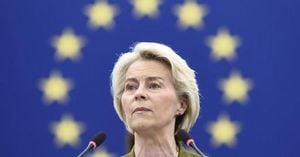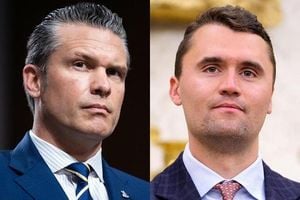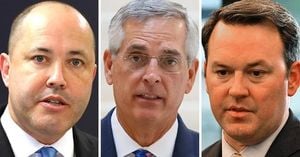Australia has taken significant strides to safeguard the mental health of its youth by implementing groundbreaking legislation aimed at moderning social media use among children. Starting from late 2025, individuals under the age of 16 will be barred from accessing major social media platforms, including TikTok, Instagram, Snapchat, and Facebook. This move, touted as the first of its kind globally, is intended to curtail the growing concerns surrounding the adverse effects of social media on young users’ mental well-being.
On November 28, 2023, the Australian Parliament swiftly passed the legislation, aiming to tackle alarming trends linking social media with various mental health challenges among the youth. The legislation requires social media companies to enforce stringent age-verification procedures to prevent underage users from accessing their platforms. Companies failing to comply could face significant fines, potentially reaching up to AUD 50 million.
The rapid approval of the bill has ignited intense discussions across different sectors. While the government champions the positive intentions behind the legislation, many tech giants, mental health professionals, and other stakeholders express their apprehensions about the overly hasty process. Concerns range from the logistical challenges surrounding the implementation of age-verification systems to the potential negative impacts on social media’s role as a connection tool for certain youth populations.
Maria Kovacic, an Australian senator from the Liberal Party, embodies the government’s rationale, asserting the responsibility social media companies have toward ensuring child safety. She stated, "This is a responsibility these companies should have been fulfilling long ago," emphasizing the need for immediate action to prioritize the welfare of the younger generation.
Despite the government’s intentions, the legislation has its critics. Some argue the necessary age-verification measures could be both flawed and intrusive, risking the exclusion of legitimate young users, particularly those belonging to marginalized communities, who may benefit significantly from social media platforms. David Shoebridge, the Australian senator for the Greens, voiced these concerns, stating, "This policy will hurt vulnerable young people the most, especially in regional communities and especially the LGBTQI community, by cutting them off.”
Aside from the enforcement challenges, the legislation has been met with allegations of political motivations. With Prime Minister Anthony Albanese’s government facing struggles reflected in unfavorable opinion polls, opponents have begun to question whether this move is more about securing political capital than about genuine goodwill for youth welfare.
The specifics surrounding the age-verification system remain murky at this point. The government is expected to conduct trials involving various techniques, including analyzing users’ video selfies, cross-checking information based on provided documentation, and using email addresses for verification. These methods, though innovative, have also raised eyebrows, as many stakeholders anticipate difficulties with accuracy and potential privacy infringements.
Tech companies directly impacted by the legislation have also chimed in with their concerns. Meta, the parent company of Facebook and Instagram, articulated both its intent to comply and its unease over the rushed legislative process, arguing it overlooked substantial evidence and failed to adequately assess existing measures already implemented to create age-appropriate experiences. TikTok and Snapchat have echoed these sentiments, labeling the law "unworkable" and filled with “unanswered questions and unresolved concerns.”
The debate surrounding this legislation extends to mental health professionals, whose opinions differ sharply on the matter. Some, like clinical psychologist Danielle Einstein, backed the restrictions wholeheartedly, adamant there are no significant mental health benefits associated with social media for younger demographics. Conversely, peer organizations like Headspace have pointed to potential downsides of disconnecting youth from platforms where they can seek support and build connections, particularly for those living in isolated parts of Australia. Nicole Palfrey from Headspace explained, "When we hear from psychologists and parents, they are very much confronted with [the] pointy end; they only see the harms, and I think that's incredibly valid. But social media can also provide support and help-seeking opportunities.”
Internationally, the impacts of this legislation could inspire similar initiatives among other nations apprehensive about social media’s influence on mental health. If Australia finds success with this approach, it could prompt global conversations on how best to safeguard the well-being of youth against the backdrop of increasingly pervasive digital landscapes.
Many stakeholders feel the bill raises real questions about balance between safety and connectivity. While this legislative push marks significant progress toward youth protection, the path to effective enforcement and practical application still lies shrouded in ambiguity. Conversations will undoubtedly simmer as Australia moves closer to executing this unprecedented initiative, involving the nuanced interplay of preserving safety without compromising the potential benefits social media can offer to younger users.



